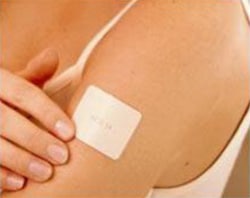NFC phones will soon be used to self-test for a number of medical conditions, to automatically report on the status of patients with chronic health conditions and to monitor the health of those who have been recently discharged from hospital, says Dr John Peeters, founder of Gentag.

Mobile healthcare technology specialist Gentag has successfully demonstrated a diagnostic test platform that combines NFC and immunoassay technology to enable self-testing for pregnancy, fertility, pathogens, Aids, drugs, allergens and even certain types of cancers.
The company has also licensed its technology to a number of leading healthcare solutions providers that plan to introduce a wide range of medical diagnostics solutions that will use NFC phones to monitor the status of patients with chronic health conditions as well as those who have recently been discharged from hospital. The first mass-market commercial services are expected to begin from the end of 2011.
“This technology breakthrough will enable much more rapid diagnoses for diseases and make diagnostics more accessible and affordable for more people worldwide,” says Dr John Peeters, founder of Gentag. With NFC, “we can also discharge people earlier from hospital and allow them to self-monitor at home,” he told NFC World.
The new diagnostic test platform is expected to broadly impact major women’s health markets, including ovulation and fertility, says Peters, as well as the men’s health market, including urine-based prostate cancer testing as well as tests for common food allergens.
With Gentag’s solution, compatible NFC phones can simply be brought into close proximity to a wireless sensor conforming to the ISO 15693 standard built into an immunoassay patch or other medical device in order to take a reading. The results can then be displayed on the phone’s screen or automatically forwarded to the patient’s doctor or hospital.
The Gentag application stored on the phone can also be set to prompt the patient to take a reading at set times during the day. Those who are late or who don’t file a reading can then be followed up by medical staff.
NFC support for the ISO 15693 standard, as well as other tag types such as Kovio’s RF barcodes, is now rapidly gaining ground. HID Global has been working with NFC controller supplier Inside Secure, for instance, to add support for its widely used ISO 15693 iClass vicinity cards to NFC phones while Gentag has been working with rival chip supplier NXP.
Next: Visit the NFCW Expo to find new suppliers and solutions